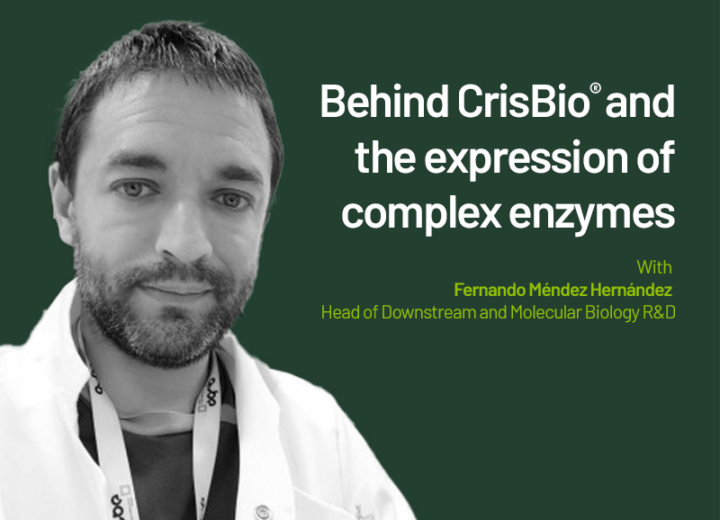7 February 2024
Do You Know That Roughly 50% Of All Proteins Investigated Are Discarded Due To Lack Of Positive Expression?

Proteins are key to any biological process within a cell, such as cell growth, gene expression, proliferation and signallying. Practically every biological step requires proteins to work their magic. Many diseases are related to malfunction of proteins, and thus, understanding how to “fix” any defect is paramount within today’s medicine.
In the last 30 years there have been incredible advances within the medical community to understand how proteins operate and to offer solutions to critical conditions and diseases; but it has been the advent of Covid 19 that has caused the explosion on research related to recombinant proteins and their use for mRNA expression. Billions of dollars are spent yearly on new research for a new panacea that would bring respite to patients in a myriad of conditions.
In biotechnology, recombinant proteins are proteins that have been produced by host cells, according to artificially modified DNA (recombinant DNA) instead of the cells’ own DNA through a vector. Different hosts are being used for the expression of recombinant proteins, with the most common ones being E.coli, and mammalian cells (CHO). Generally speaking, CHO cells are being used for complex proteins and E.coli for those simpler proteins as it is a scalable system at a relatively low cost.
Once proteins are produced, they are used for the treatment of specific diseases, but also, in research and production. Despite best efforts by scientists and biotechnologists dedicated to the optimization of the expression of selected proteins, published data has shown that about 50% of the proteins investigated are commonly discarded since they fail to express (1), and exhibit any activity.
This staggering figure represents a clear failure within current expression systems. It is very likely that possible treatments and solutions to key conditions and illnesses have been discarded due to lack of success with current expression systems.
These difficult to express proteins typically fall into categories such as toxoids, multi-domain proteins, enzymes, membrane proteins (MPs), antibodies, and certain proteins that are poorly soluble in some expression systems.
There are many reasons why a protein will not be expressed, often it can be challenging as foreign hosts might not be able to correctly fold a protein. Very often, proteins of eukaryotic origin being expressed in a prokaryotic expression system (i.e. E.coli) will result in very different reactions. Importantly, highly complex proteins that act on biological systems often require post translational modifications such as glycosylation, phosphorylation, and other variants of post-translation modification that simply do not occur with certain expressions systems.
At Cocoon Bioscience, we offer a different alternative, orthogonal approach, wherein we use insect chrysalis at its cocoon stage as natural bioreactors to express enzymes, growth factors, and other proteins. CrisBio® is a unique technology for the production of biological products based on the expression of baculovirus, as the insect itself acts as single-use bioreactor and recombinant protein production occurs in a multi-cellular environment. The technology utilizes Trichoplusia ni, commonly known as the cabbage moth, as living and immobile bioreactors that can be used in a fully automated system to take recombinant protein production to the next level for those difficult to express proteins. CrisBio® is based on the baculovirus expression vector system, one of the most powerful, robust, and versatile eukaryotic expression systems, significantly increasing the speed and versatility of expressing a wide variety of protein families, allowing for accelerated development times for protein-based products.
Our system is proving highly effective in the production of “impossible” proteins and enzymes that other traditional systems have been unable to express. We work with proteins and enzymes that have proved difficult even when sourced naturally. Our high rate of success makes us confident in our unique system which uses a whole cell system rather than individual cells. We continue to work in supporting biotech and pharma companies in their drive to seek new treatments, diagnostics, and production processes and we believe that our cocoon-based platform offers a path to success for those impossible to produce proteins.
We would encourage any scientist working on recombinant protein and enzyme expression projects not to discard a candidate due to expression failure but contact us for a proof-of-concept related project – let’s see if we can rescue your research.
Source (1): https://journals.plos.org/ploscompbiol/article?id=10.1371/journal.pcbi.1009461



